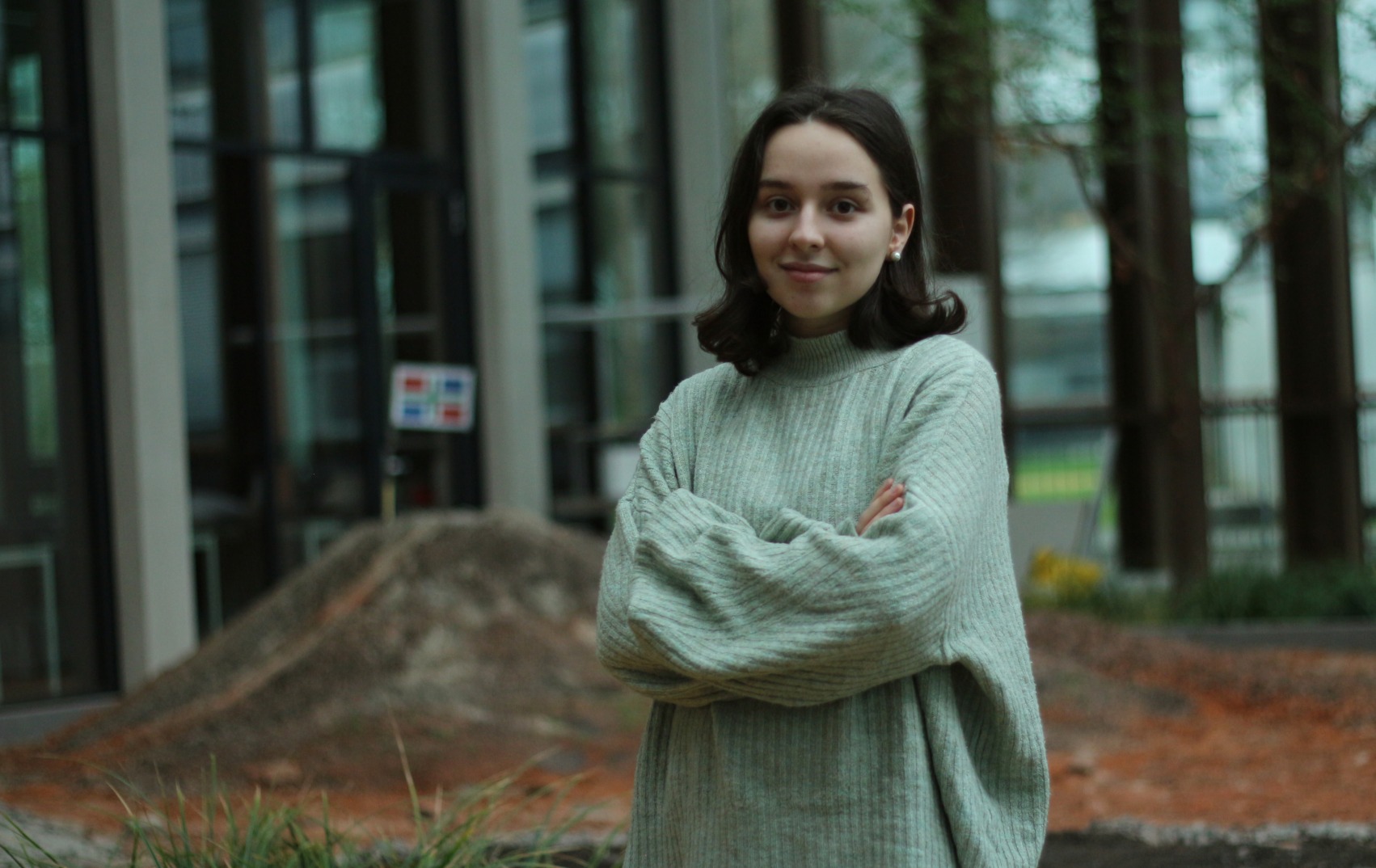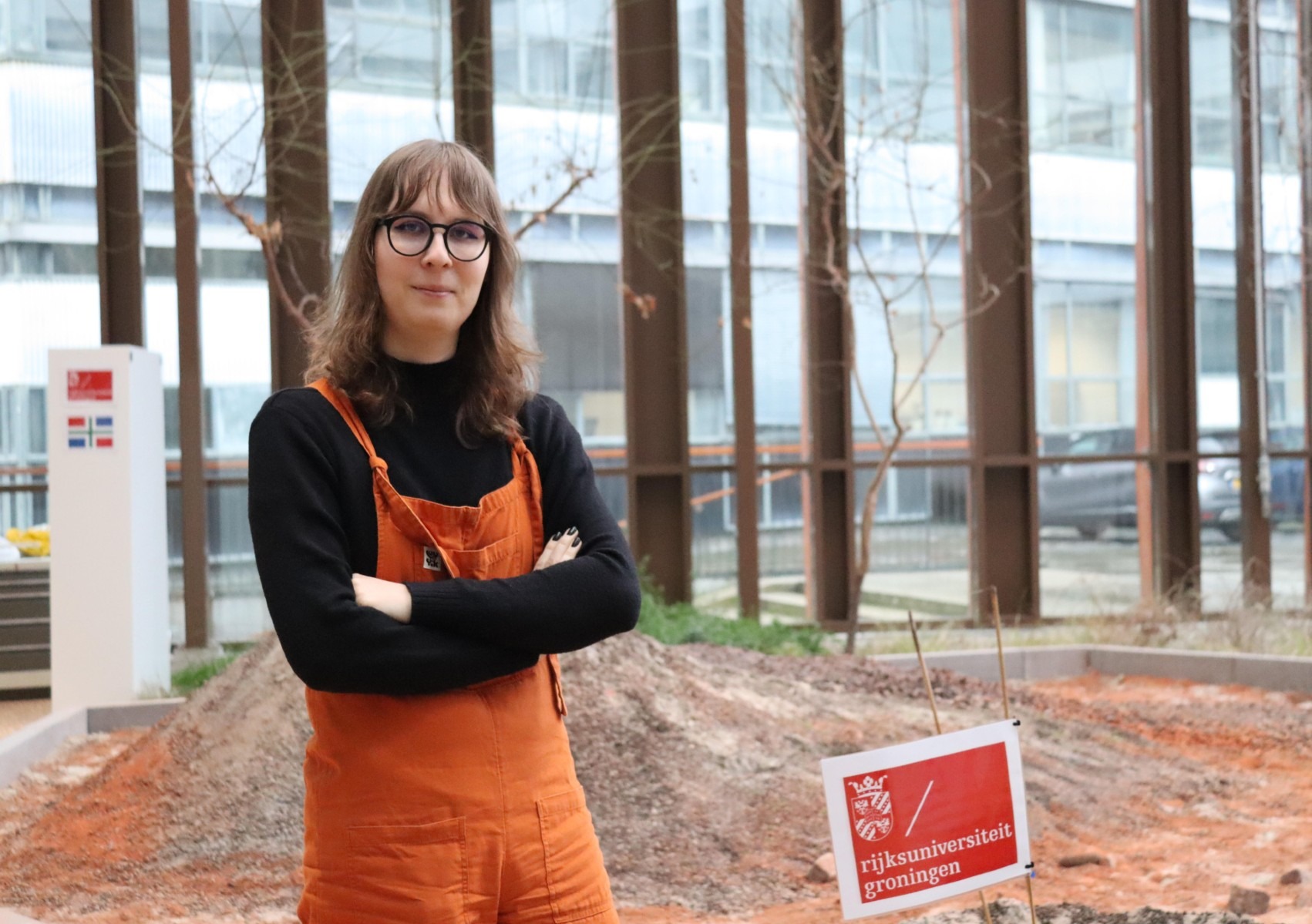Behind the scenes: how UG and Hanze UAS students are jointly developing a Mars rover
The students of Makercie are busy preparing for the European Rover Challenge (ERC). This year, the UG students are not going at it alone, but are working together with five students from the Hanze University of Applied Sciences. The team previously won the remote edition of the ERC, but this year they will travel to Poland to compete in the physical variant of the competition. In this article, three students share their experiences as members of the multidisciplinary team.
Text: Froukje Duursema, Corporate Communicatie
Together we are stronger
The Vice Chair of the Makercie team, Helena Jaworska, explains the cooperation with Hanze University of Applied Sciences. ‘The cooperation between Makercie and Hanze UAS began around June 2023. Initially, we contacted Hanze UAS because we were keen to use their facilities, such as 3-D printers and laser cutters. The Hanze University of Applied Sciences turned out to be so interested in our project, that part of Makercie’s hardware department relocated to the Hanze Makerspace in the Van Doorenveste building on the Zernike grounds.’ The Makerspace is intended for both engineering and non-engineering students to experiment with materials, tools, and machines. ‘The members of the Makerspace at Hanze UAS were very enthusiastic about our idea, and have been extremely helpful so far. Since September 2023, we have had five new members join us from the Hanze University of Applied Sciences, whereas previously, the team consisted only of UG students.’

Eye-opener
Student Mara Neculau is one of the five participants from the Hanze University of Applied Sciences. Neculau studies Design at Minerva Academy, and specializes in graphic and interaction design. Neculau came into contact with Makercie through one of its co-founders. ‘I found it fascinating that a handful of students, with sheer will power, put in every effort to form a team, which then went on to win the European Rover Challenge within a year. I also noticed that the team values communication and is not afraid to make mistakes and learn from them, which is why I soon knew that I wanted to join in.’
‘What the team was still missing to achieve its full potential was someone with knowledge of visual communication and the skills to create brand guidelines. I thought it was a fantastic opportunity to participate as a graphic designer, especially as it gave me the opportunity to apply my skills in practice, and broaden my perspective on technology. My joining the team even led to me having the lead role in the PR team and subsequently becoming a member of the board. In the beginning, I had no idea what to expect. It was an eye-opener to meet so many students from engineering and technology, a field I never expected to come into contact with.’

Learning and applying
Mathematics student Izabela Kurek has been a member of Makercie since March 2023. In her third year of study, she was given more freedom of choice and joined the team, where she started writing program code for the robotic arm. ‘I didn't really know what I wanted to focus on with my studies, but through Makercie I found out that numeral mathematics and computer technology suit me well. This gave more depth to my studies, which also helped me to enjoy studying much more.’
Kurek now focuses specifically on the arms of the Mars rover, working on what is known as ‘collision detection’. It means that the robot’s arm needs to know where it can and cannot go. This requires introducing a ‘machine learning algorithm’. ‘A simple example is that a robot cannot reach through an object. To avoid this, a model of the object is created so that the robot recognizes it and learns to go around it.’

Multidisciplinary collaboration
Makercie started out with six members. ‘We currently have approximately 80 members. As our multidisciplinary collaboration has grown, I have met many people from other engineering studies that I didn't have much exposure to before, such as AI or Computing Science. If I hadn't joined Makercie, that would never have happened. Kurek says she really appreciates working with the various disciplines. ‘It's nice to get so many different perspectives and brainstorm together.’
‘I am very much looking forward to this year's physical edition of the European Rover Challenge. Last year, we took part in the remote edition, but this year we are going to Poland. I think it will be cool to see how the robot moves based on our homemade code.’
More information
For more information about the project, visit the European Rover Challenge website.
| Last modified: | 07 February 2025 12.33 p.m. |
More news
-
07 April 2025
Plastic recycling: how to best reuse carbon atoms
Scientists at the University of Groningen are working on new ways to recycle plastic waste into new, high-quality products.
-
07 April 2025
Gratama Jubilee gift for Marleen Kamperman and Marijke Leliveld
Prof. Marleen Kamperman and Marijke Leliveld received EUR 100,000 from the Gratama Foundation for their research project aimed at producing organic textiles for sustainable fashion.
-
03 April 2025
IMChip and MimeCure in top 10 of the national Academic Startup Competition
Prof. Tamalika Banerjee’s startup IMChip and Prof. Erik Frijlink and Dr. Luke van der Koog’s startup MimeCure have made it into the top 10 of the national Academic Startup Competition.
